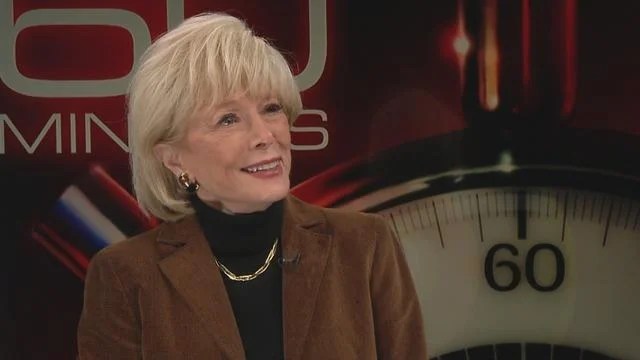In the realm of investigative journalism, few platforms have garnered as much respect and recognition as CBS's "60 Minutes." This iconic television program has been a beacon of truth, illuminating the stories that shape our world. At the heart of this program are the dedicated and talented reporters who bring these narratives to life. In this article, we dive into the world of "60 Minutes reporters," exploring their backgrounds, contributions, and the impact they have made over the years.
From hard-hitting investigations to in-depth interviews with influential figures, the work of "60 Minutes reporters" transcends mere journalism; it serves as a critical tool for accountability and transparency. These reporters have a knack for uncovering hidden truths, often at great personal risk, and their fearless approach to storytelling has earned them numerous accolades. As we delve deeper into the lives of these reporters, we will discover the passion and commitment that drives them to pursue the truth relentlessly.
The legacy of "60 Minutes reporters" is not just defined by their stories but also by the profound impact they have on society. As they tackle pressing issues and highlight injustices, their work resonates with audiences and prompts meaningful conversations about the state of our world. Join us as we explore the fascinating world of "60 Minutes reporters," their unique biographies, and the stories that have made waves in journalism.
Who are the Most Notable 60 Minutes Reporters?
The list of notable "60 Minutes reporters" is extensive, featuring journalists who have made significant contributions to the field. Some of the most prominent figures include:
- Mike Wallace
- Diane Sawyer
- Anderson Cooper
- Lesley Stahl
- Scott Pelley
What is the Impact of 60 Minutes Reporters on Investigative Journalism?
"60 Minutes reporters" have played a crucial role in shaping investigative journalism. Their commitment to uncovering the truth has led to groundbreaking stories that have influenced public opinion and policy. The show's format allows for in-depth storytelling, giving reporters the time needed to thoroughly investigate complex issues. This approach not only highlights injustices but also fosters a sense of accountability among those in power.
Are There Any Iconic Stories by 60 Minutes Reporters?
Throughout its history, "60 Minutes" has featured numerous iconic stories that have left a lasting impact. Some noteworthy examples include:
- The Watergate Scandal
- The CIA's involvement in the Iran-Contra Affair
- Interviews with political leaders and controversial figures
- Exposés on systemic issues such as healthcare and education
What Does a Typical Day Look Like for 60 Minutes Reporters?
For "60 Minutes reporters," a typical day is anything but ordinary. The work involves extensive research, interviews, and fieldwork to gather the necessary information for each story. Reporters often travel to various locations, sometimes under challenging conditions, to capture the essence of their narratives. Their days are filled with planning, strategizing, and conducting interviews that will ultimately shape the final product seen by millions.
What Skills are Essential for 60 Minutes Reporters?
To excel as a "60 Minutes reporter," several key skills are essential:
- Investigative Skills: The ability to dig deep and uncover hidden truths.
- Interviewing Techniques: Building rapport with subjects to elicit candid responses.
- Storytelling: Crafting compelling narratives that engage viewers.
- Critical Thinking: Analyzing information and making informed decisions.
Who are the Current 60 Minutes Reporters?
The current lineup of "60 Minutes reporters" includes a mix of seasoned journalists and rising stars. Some notable current reporters are:
- Lesley Stahl
- Scott Pelley
- Anderson Cooper
- Bill Whitaker
- Sharyn Alfonsi
What are the Challenges Faced by 60 Minutes Reporters?
While "60 Minutes reporters" are celebrated for their work, they also face numerous challenges. These can include:
- Pressure to Deliver: The expectation to produce high-quality stories under tight deadlines.
- Safety Concerns: Reporting in conflict zones or on sensitive topics can be dangerous.
- Maintaining Objectivity: Striking a balance between personal beliefs and journalistic integrity.
What Legacy Do 60 Minutes Reporters Leave Behind?
The legacy of "60 Minutes reporters" is one of courage, integrity, and an unwavering commitment to truth. Their work not only informs the public but also inspires future generations of journalists to pursue the truth in their own reporting. The stories they tell often resonate far beyond the screen, prompting discussions and actions that can lead to social change.
What is the Future of 60 Minutes Reporters?
As the media landscape continues to evolve, the future of "60 Minutes reporters" remains bright. With the rise of digital media and changing viewer habits, there is an opportunity for these reporters to adapt and innovate. By embracing new technologies and platforms, they can continue to reach audiences and deliver impactful stories that matter.
| Reporter Name | Years Active | Notable Works | Awards |
|---|---|---|---|
| Lesley Stahl | 1971 - Present | Interviews with political leaders | Emmy Awards |
| Scott Pelley | 2004 - Present | Coverage of the Iraq War | Edward R. Murrow Award |
| Anderson Cooper | 2007 - Present | Profiles of global leaders | Emmy Awards |
| Bill Whitaker | 2014 - Present | Exposé on systemic issues | George Foster Peabody Award |
| Sharyn Alfonsi | 2015 - Present | Investigative reports on social issues | Emmy Awards |
In conclusion, the "60 Minutes reporters" have left an indelible mark on journalism and society. Their relentless pursuit of truth and dedication to uncovering the stories that matter will continue to inspire future generations in the field. As we look ahead, we can only anticipate the impactful stories these reporters will bring to life, reinforcing the vital role of journalism in a democratic society.




